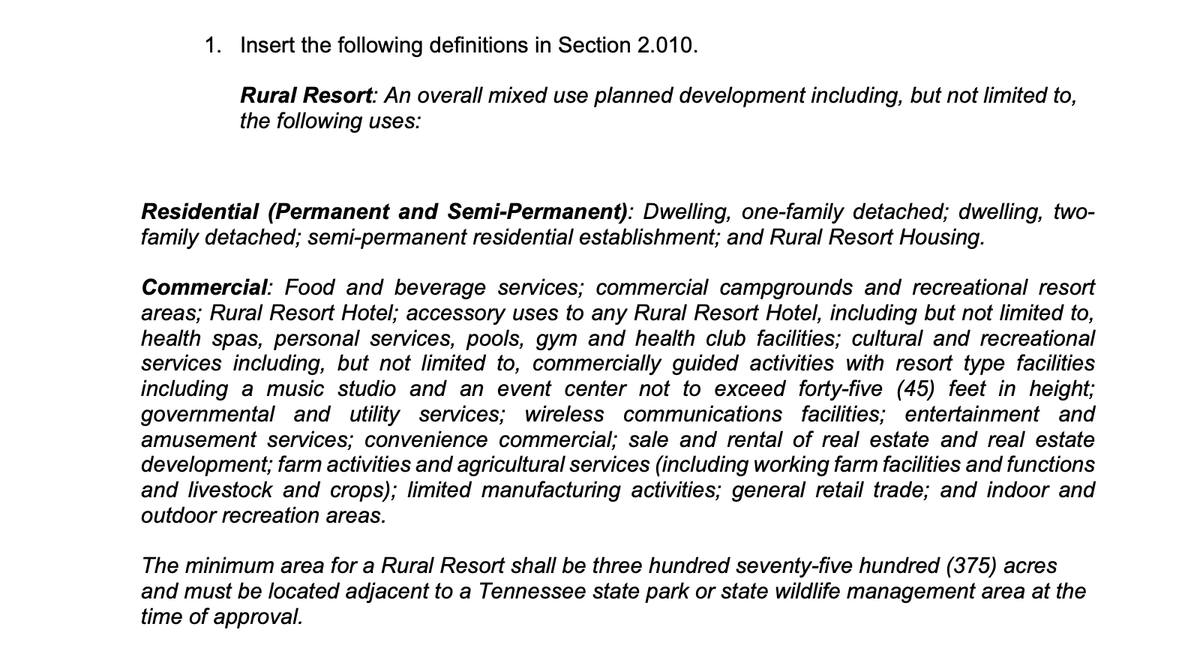Planning Commission rejects rural resort zoning amendment, leaves door open for revisions

The Cheatham County Planning Commission voted Thursday night to recommend denial of a zoning amendment that would create a new category for “Rural Resorts,” a measure drafted by developers behind a proposed $250 million luxury resort near the Narrows of the Harpeth in Kingston Springs.
The decision came after a 90-minute meeting at the Cheatham County Courthouse, where about 50 people attended and 30 community members spoke during the public forum. Only three residents spoke in favor of the project.
Michael Hayes, CEO of Nashville-based C.B. Ragland, was present with his attorneys Bill Herbert and Jim Murphy. Hayes’ team has pushed for the amendment to allow commercial mixed-use planned unit developments (CMUPUDs) on large tracts of rural land adjacent to state parks or wildlife management areas.
Hayes and his lawyers argued that the proposal aligns with the county’s 2022–2042 Growth Plan, which designates the site as a “Rural Area.” They said the project’s low density – 80 cottages and 40 branded residences on roughly 100 acres of a 560-acre property – fits the spirit of rural preservation.
Murphy said the amendment was consistent with the county’s growth plan, and county attorney Michael Bligh agreed, noting that the low-density resort would not violate the plan’s intent.
Still, Planning Commission members expressed hesitation to move forward with the amendment as written. They emphasized that the proposal represents a significant change to county zoning law, not just for the Narrows property but for all of Cheatham County.
"In all my years on this board, I don't think I've ever had a developer to provide us with a new zoning text amendment,” said District 4 Planning Commission member Brenda Montgomery, which caused the courthouse to erupt in applause.
Planning Commission members didn’t offer specifics as to why they didn’t approve of the amendment as written, but the document highlighted the access easement as 30 feet when Cheatham County law requires a minimum of 50 feet.
Brian McCain, 6th District (Kingston Springs) Planning Commission member, made a motion to deny the zoning amendment as presented.
“What we’re seeing is super tailor-made, and it doesn’t fit the area at all … It smells foul,” he said. “I’m 6th District and I don’t want it either. If it comes back it needs to be super specific and it needs to have some input by the people.”
McCain added, “The residents may be ready for it in five years, 10 years, 15 years – they ain’t ready for it right now.”
6th District (Kingston Springs) Planning Commission member Matt Von Lunen said this amendment offered an opportunity for the commission to start with a “blank slate” and really home in on certain definitions, like low density versus high density development.
“If we vote it down, I don’t want us to stop talking about it. This county has opportunities for something like this. Maybe it’s not in this spot,” Von Lunen said. “But we have too much to offer and too much to gain from something that comes up like this in the right spot.”
Ultimately, the commission voted to recommend denial of the amendment but invited Hayes’ team to return with revisions. Members said they wanted more time to study the issue and craft a solution that addresses community concerns. No timeline was provided for this process.
The County Commission will take up the Planning Commission’s recommendation at its November 17 meeting.
The proposed Bell’s Reserve project has faced growing opposition from Kingston Springs residents, more than 1,200 of whom have signed a petition urging county leaders to reject the resort. Many opponents argue it would worsen traffic on Cedar Hill Road and harm the Harpeth River. Some have called on Gov. Bill Lee to purchase the land and fold it into the Tennessee State Parks system.
Hayes has described his vision as a “low-density rural retreat” inspired by Blackberry Farm in East Tennessee and Wildflower Farms in New York. He has said the resort would emphasize preservation, sustainable farming and partnerships with local schools and artists, while generating more than 200 jobs.



